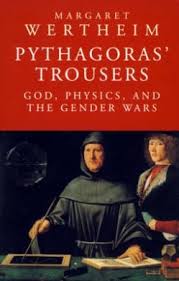
Pythagoras' Trousers - God, Physics, and the Gender Wars
In Pythagoras' Trousers, science writer Margaret Wertheim offers an astute social and cultural history of physics, from ancient Greece to our own time. Wertheim demonstrates that from its inception, physics has been an overwhelmingly male-dominated activity and continues to be so today. But what, she asks, would the world look like - what could the world look like - if men and women worked side by side in shaping the physics of the future? Wertheim puts forward the startling hypothesis that gender inequity in physics is a result of the religious origins of the enterprise. Physics, she reveals, is a science based on a conception of God as a divine mathematical creator. For most of its history, it has been intimately entwined with the institutions of Christianity, and in line with those institutions has historically been closed to women. Furthermore, physicists' world picture has evolved from a deeply masculine perspective. Wertheim shows that the battle women faced to break into science parallels the battle they faced to break into the clergy; physics has become the Catholic church of science. Even now, women have made tremendous strides in the social and biological sciences, yet they remain chronically underrepresented in physics. Why is this so? Wertheim argues that a crucial factor behind this inequity is the continuing religious undercurrent in contemporary physics. At a time when we are witnessing a resurgence of interest in physics and the divine - Stephen Hawking suggests that his science is a quest for the mind of God - there is a need to take a closer look at the ongoing relationship between physics and faith, and to examine the implications of that relationship for both sexes.
